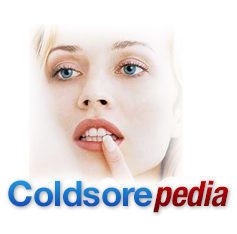Cold sores are also known as fever blisters, although they are not actually caused by having a raised temperature. Cold sores are caused by the herpes simplex virus. Most people are exposed to this virus when they are young children. The virus is generally seen as a common cold and does not present itself in the form of a lesion, but long after the cold has cleared up, the virus resides along the cells of the nervous system. For many people the virus remains dormant forever; however, millions of people suffer from recurring cold sores that can appear as a result of stress, exposure to the sun, even menstruation. Once you get a cold sore you are contagious; in fact, you are contagious from shortly before the lesion appears until a few days after it has completely cleared up.
Stages of a Cold Sore
Most of the people in the world have been exposed to Herpes Simplex Virus one, and if you are one of the lucky ones, you have never had a breakout. However, if you are one of those who do suffer the pain and embarrassment of cold sores, you are well aware that the outbreak always follows the same, irritating course. It almost always begins with an itching or tingling sensation under the skin in the area around
your mouth, lips or nose. For many people this is the most upsetting time of all, because they know that they are going to break out and that there is little that can be done to stop it. A few days later, the breakout occurs in the form of small, fluid filled blisters that appear around the mouth, lips or nose.
They often form in small clusters, which eventually merge together, getting bigger and more uncomfortable until they finally burst open and weep a clear fluid. The lesions are ugly and red, and eventually form a yellow crust that takes several days to disappear.
Cold sores are difficult to hide and they cause most people tremendous embarrassment. They are also often accompanied by other bodily symptoms such as fatigue, aches and pains and fever. Cold sores generally clear up on their own after about two weeks.
Cold Sore Treatments
One of the most frustrating aspects of having cold sores is the fact that there is no cure. Once you carry the herpes simplex virus, you carry it for life, and can easily spread it to other people by kissing or sharing towels. The virus is highly contagious, so you need to be very careful when you are having an outbreak, and need to practice good hygiene in order to shorten your own course. There are a couple of treatments that you can do on your own are available that can alleviate the symptoms. These include using ice to ease the pain and itching. There are also a variety of over the counter and prescription medications that some people have been successful with.
Abreeva
Abreeva is an over the counter medication that actually shortens the duration of a cold sore outbreak by limiting how many cells the virus can spread into. It has been approved by the Food and Drug Administration, and actually forms a barrier around healthy cells that protect them from the spread of the virus. It also makes the area that is already affected by the cold sore feel better.
Lysine
Lysine is an alternative remedy that many people believe works to cut back on the incidence of cold sore outbreaks. It is an amino acid that is found in a variety of food sources and can be purchased as a supplement. It is also available as a topical treatment for once an outbreak occurs.
Zicam
Zicam is a zinc-
Zovirax and Docosanol
Docosanol and Zovirax, which is also known as acyclovir, are both antiviral medications. They are available only through a doctor’s prescription, and are available as either an ointment or a cream. Both are made to be applied as soon as the first symptoms of a cold sore appear, and if used properly they are supposed to shorten the course of a cold sore outbreak.
Other Medications
In addition to the treatments listed here, there are some prescription medications that can be taken orally for the treatment of severe outbreaks of cold sores. In cases where an outbreak is deemed to be extensive, some medications may be dosed intravenously.
